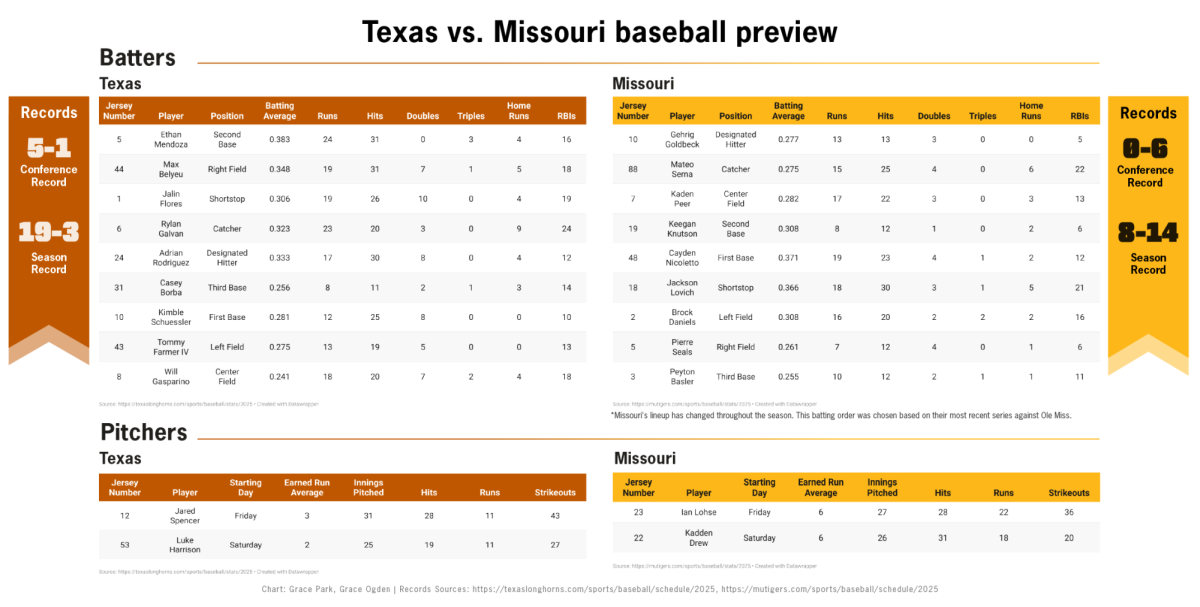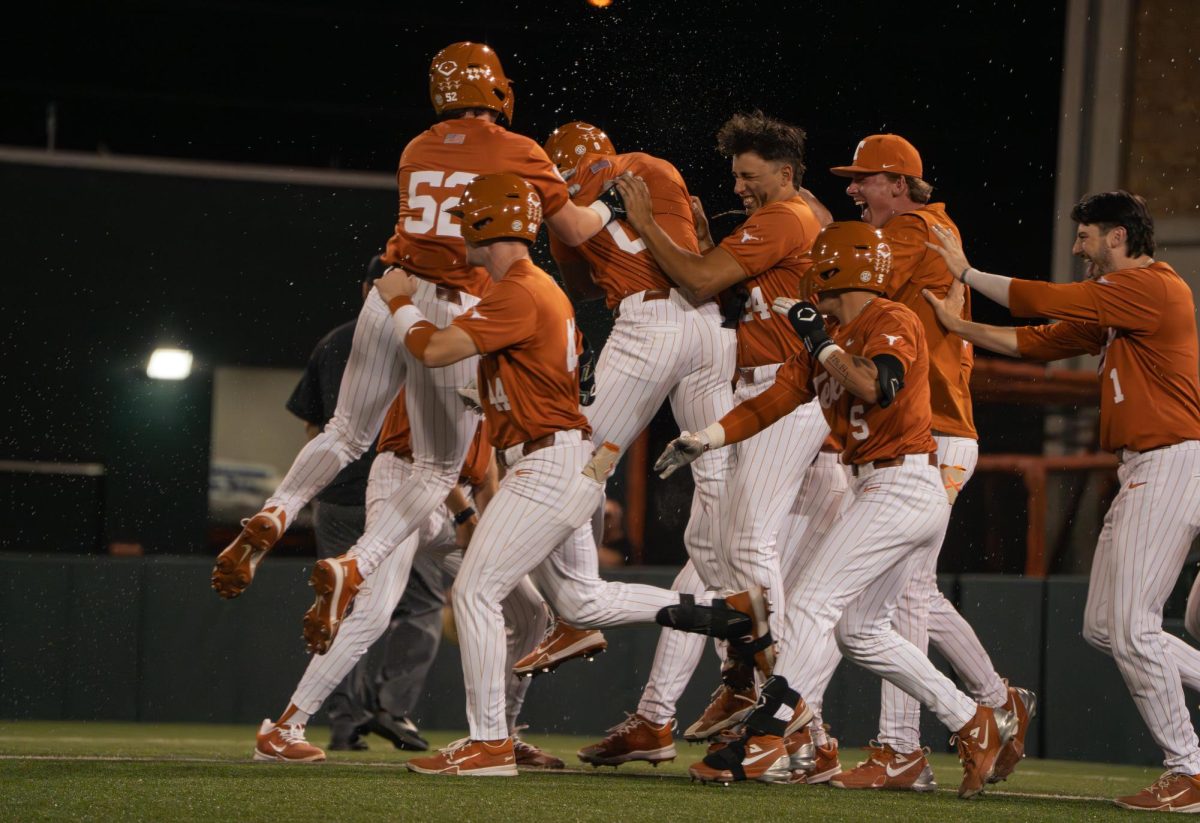These Longhorns likely won’t go down as Texas’ best team under Augie Garrido. In fact, of the eight Texas squads he’s brought to the College World Series, this team may finish with the least wins. Currently, they have the lowest batting average, .267, of the eight teams.
Regardless, this team is clicking at the right time and, thanks to an impressive start to the postseason, this year’s pitching staff has the lowest ERA, 2.33, of any Texas team during Garrido’s tenure.
After finishing last in the Big 12 in 2013, the Longhorns started this season 21-6 — their best start since they last won the national title in 2005. They won their first conference series in nearly two calendar years by taking two of three from Texas Tech early on in conference play. Texas followed that up with sweeps of Baylor and Oklahoma, as the Longhorns rose up to No. 4 in the polls with a record of 30-8 with half their conference games left to be played.
During that 15-2 stretch, Texas averaged 2.88 extra base hits per game, which was more than double their average during the first 21 contests. Over this period the Longhorns scored over 6.5 runs per game while the pitching staff’s ERA was a paltry 2.02.
But the Longhorns were overmatched by TCU, only scoring one run while being swept in three games at home. This marked the beginning of Texas’ troubles as the Longhorns would go 8-10 to limp into the NCAA Tournament. In their losses, Texas only hit .226 while committing 1.4 errors per loss. These struggles extended to the mound, as the team’s ERA of 4.29 in those losses raised the staff ERA to 2.45 overall for the season. Texas pitchers also allowed two extra base hits per game in the 10 losses, after giving up only 1.13 per game in the team’s first 38 contests.
The Longhorns dropped seven of nine conference games during that span, until it won its final conference series of the season by taking two of three from last place Kansas State. It won its first two games of the Big 12 Championship with relative ease, only to blow a pair of one-run games to Oklahoma State to end Texas’ run in Oklahoma City.
Since the start of the NCAA Tournament, however, the Longhorns seem to have figured out the cure to their woes. Using a combination of dominant pitching, solid defense and just enough offense, Texas was able to return to Omaha after a two-year interval.
Dominant may not be doing the pitching staff’s performance justice so far this postseason. Texas’ pitchers had posted an ERA of 1.15 and allowed only two extra base hits allowed in six tournament contests prior to the College World Series. Texas committed three errors in its loss to Texas A&M, but has only committed three errors in its five postseason wins to further emphasize the importance of defense in the tournament.
In the six tournament games before they made the trip to Omaha, the Longhorn offense averaged over four runs a game, which was enough to win, thanks to the stellar play on the mound.
Longhorn fans have to be happy with this team’s performance in the tournament. Texas seems to have finally found its groove and managed to turn a disappointing season into another trip to Omaha. If the offense can continue to find a way to score four or five runs a game, Texas’ pitching should be able to hold up and carry this squad to the program’s seventh national championship.



















